
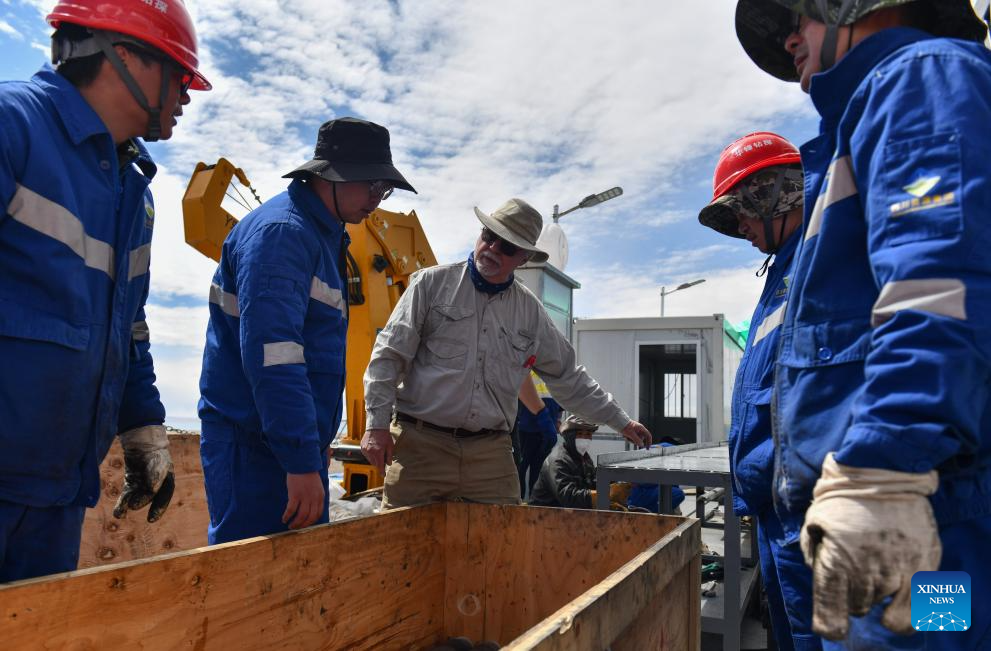
Technicians set up a drilling platform on Nam Co Lake in southwest China's Xizang Autonomous Region, June 1, 2024. Multinational researchers have been carrying out a core drilling project in Nam Co, the world's highest saltwater lake in southwest China's Xizang Autonomous Region, since early June, providing data on climate and environmental changes on the Qinghai-Xizang Plateau over the past million years. (Xinhua/Jigme Dorje)
Multinational researchers have been carrying out a core drilling project in Nam Co, the world's highest saltwater lake in southwest China's Xizang Autonomous Region, since early June, providing data on climate and environmental changes on the Qinghai-Xizang Plateau over the past million years.
The joint scientific expedition team comprises a lake and environmental change research team from the Institute of Tibetan Plateau Research, Chinese Academy of Sciences, and scientists and drilling technicians from countries including Germany, Switzerland, the United Kingdom and the United States.
Nam Co, located in the Qinghai-Xizang Plateau, with a lake-surface elevation of 4,718 meters, is the second largest lake in the region and an important scientific research base.
The lake expedition conducted in Nam Co is a project under the International Continental Scientific Drilling Program (ICDP).
The team plans to drill nearly 1,000 meters of lake core at three locations in Nam Co. So far, it is the highest ICDP drilling project in altitude worldwide, said Wang Junbo, one of the leaders of the scientific expedition team.
"The drilling platform, rig and main drilling technicians are all from China," added Wang. (Xinhua)
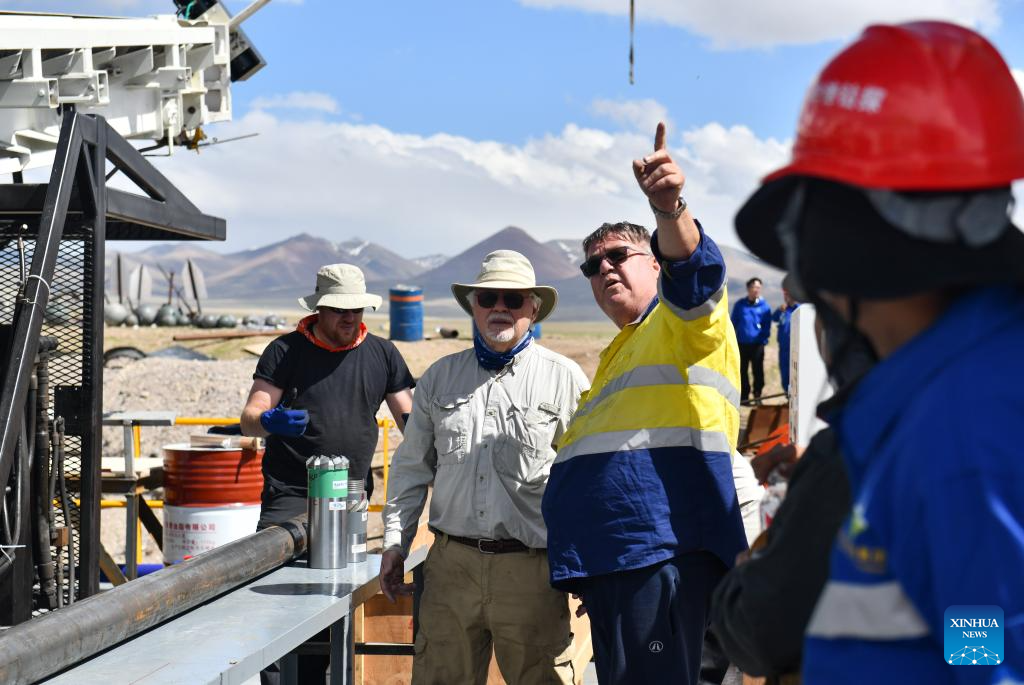
Technicians set up a drilling platform on Nam Co Lake in southwest China's Xizang Autonomous Region, June 1, 2024. Multinational researchers have been carrying out a core drilling project in Nam Co, the world's highest saltwater lake in southwest China's Xizang Autonomous Region, since early June, providing data on climate and environmental changes on the Qinghai-Xizang Plateau over the past million years. (Xinhua/Jigme Dorje)
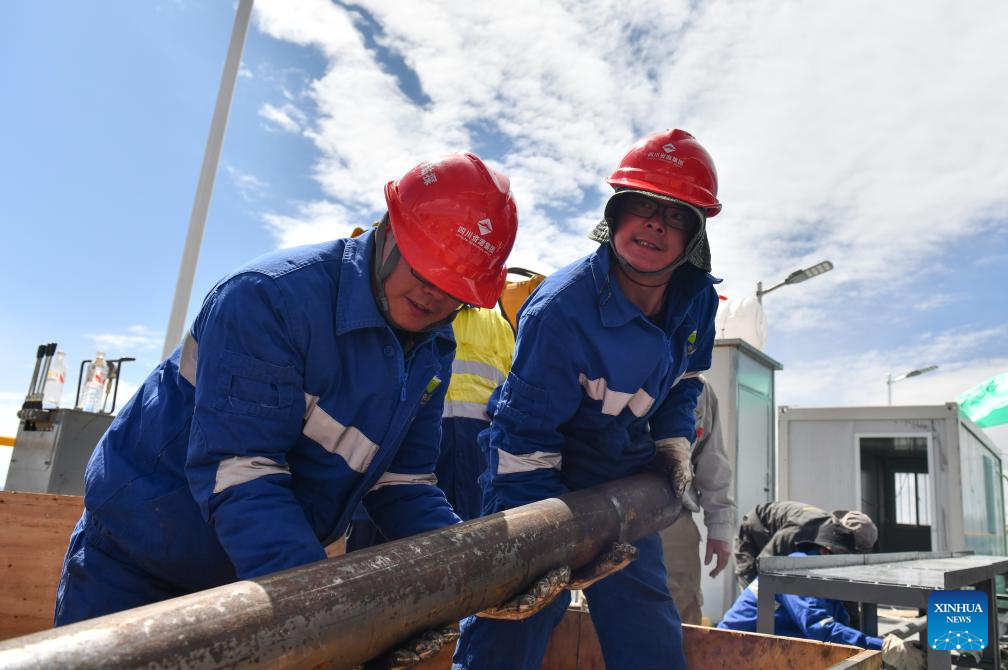
Technicians set up a drilling platform on Nam Co Lake in southwest China's Xizang Autonomous Region, June 1, 2024. Multinational researchers have been carrying out a core drilling project in Nam Co, the world's highest saltwater lake in southwest China's Xizang Autonomous Region, since early June, providing data on climate and environmental changes on the Qinghai-Xizang Plateau over the past million years. (Xinhua/Jigme Dorje)
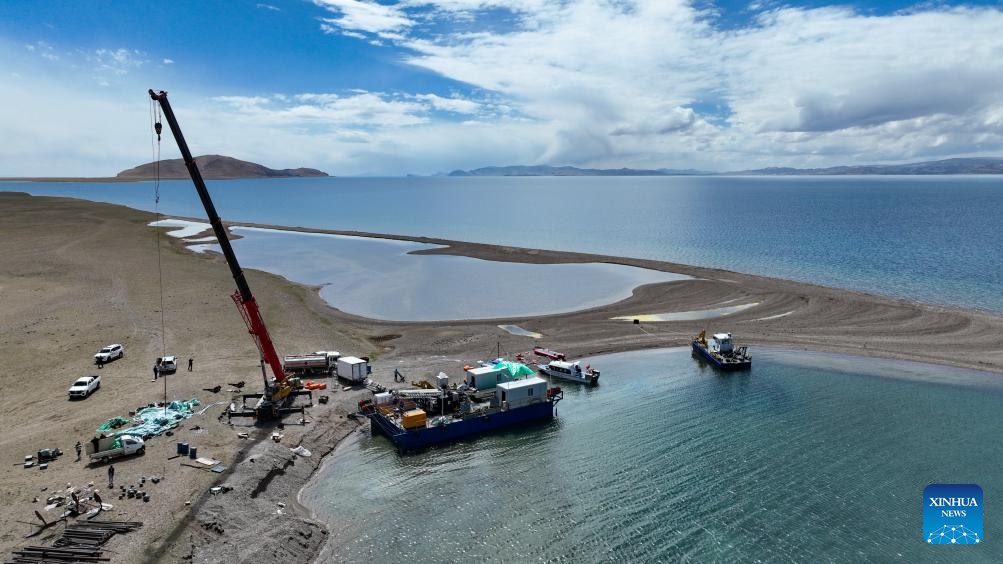
A drone photo taken on June 1, 2024 shows researchers preparing for a drilling project on Nam Co Lake in southwest China's Xizang Autonomous Region. Multinational researchers have been carrying out a core drilling project in Nam Co, the world's highest saltwater lake in southwest China's Xizang Autonomous Region, since early June, providing data on climate and environmental changes on the Qinghai-Xizang Plateau over the past million years. (Xinhua/Jigme Dorje)
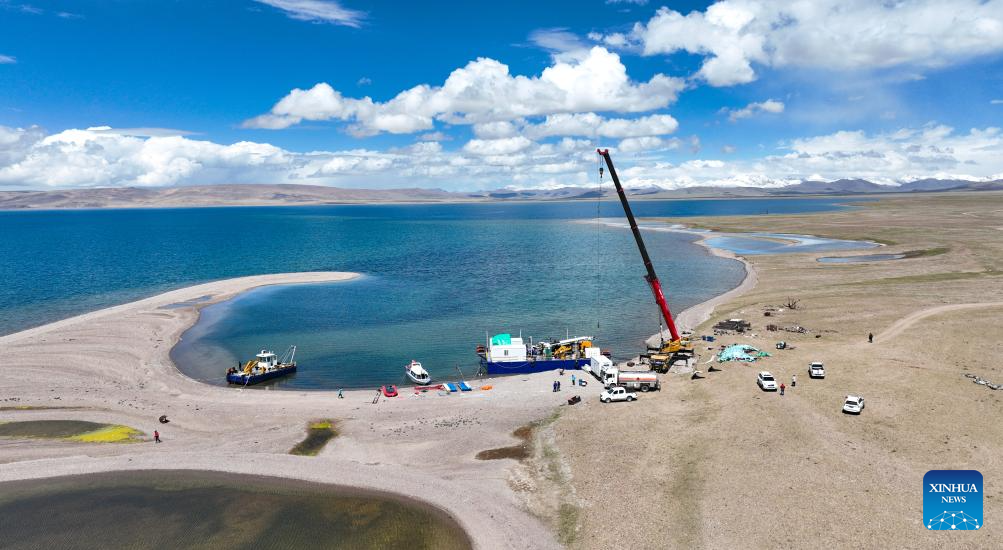
A drone photo taken on June 1, 2024 shows researchers preparing for a drilling project on Nam Co Lake in southwest China's Xizang Autonomous Region. Multinational researchers have been carrying out a core drilling project in Nam Co, the world's highest saltwater lake in southwest China's Xizang Autonomous Region, since early June, providing data on climate and environmental changes on the Qinghai-Xizang Plateau over the past million years. (Xinhua/Jigme Dorje)
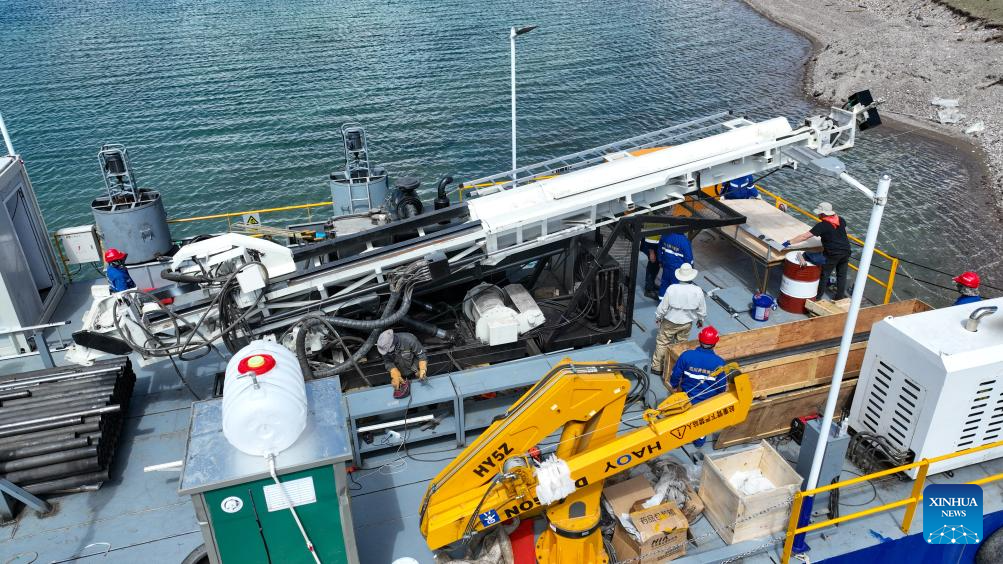
A drone photo taken on June 1, 2024 shows researchers preparing for a drilling project on Nam Co Lake in southwest China's Xizang Autonomous Region. Multinational researchers have been carrying out a core drilling project in Nam Co, the world's highest saltwater lake in southwest China's Xizang Autonomous Region, since early June, providing data on climate and environmental changes on the Qinghai-Xizang Plateau over the past million years. (Xinhua/Jigme Dorje)

86-10-68597521 (day)
86-10-68597289 (night)

52 Sanlihe Rd., Xicheng District,
Beijing, China (100864)

